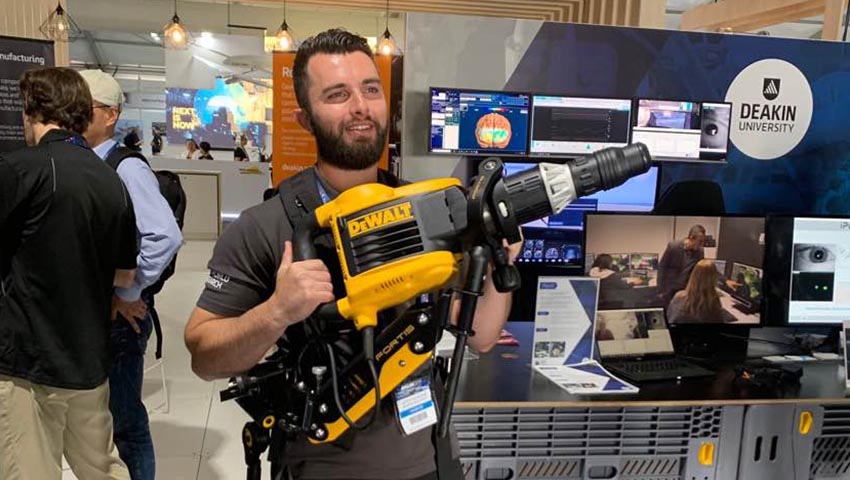Deakin University’s Institute for Intelligent Systems Research and Innovation (IISRI) have showcased Lockheed Martin’s FORTIS exoskeleton at Avalon Airshow as part of their 12-month research partnership.
To continue reading the rest of this article, please log in.
Create free account to get unlimited news articles and more!
The partnership set out to extend the application of the FORTIS passive exoskeleton, which was primarily engineered as a tool holding device.
The FORTIS redirects the weight of a heavy tool and sends it into the ground, bypassing the user’s body in the process.
The unpowered, lightweight exoskeleton can make tools up to 16.3 kilograms feel weightless, which reduces user fatigue and improves worker safety.
“Exoskeletons are the future of injury prevention,” said Dr Darius Nahavandi, research fellow, human factors modelling and simulation at Deakin University.
“However, ensuring they adapt to working conditions effectively is the key.”
Deakin researchers have designed and 3D-printed new attachments to expand the functionality of the FORTIS, allowing the exoskeleton to accommodate external loads usually mounted on the back of the human body.
“The innovative work done by the Deakin University team extends the technological foundation for the FORTIS exoskeleton and helps open up a broader range of applications across defence, automotive and mining industries, and we look forward to continuing our engagements together,” said James Heading, business development senior manager at Lockheed Martin missiles and fire control.
Researchers at IISRI have been examining computational human performance factors, specifically in the mining industry, since 2015.
One of the main areas of research involved “looking in depth at the current procedures and assistive technologies currently in use and the impact on the operator’s body”.
“At Deakin University, our researchers are making a positive impact on the lives and wellbeing of people in Australia and around the world through exceptional innovation and research with our partners,” said Professor Julie Owens, deputy vice-chancellor research at Deakin University.

 Login
Login







